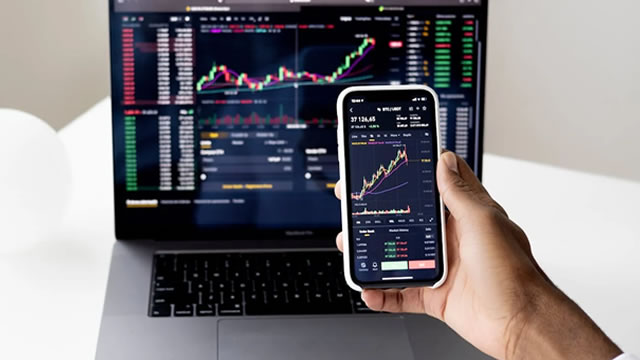Navigating the Storm: A Chat with Lesley Marks of Mackenzie Investments on Trump’s Tariff Policies
In the ever-changing world of global economics, few topics have sparked as much debate and uncertainty as the tariff policies implemented by US President Donald Trump. As investors weigh the potential impact of these policies on their portfolios, insights from industry experts have become invaluable. Enter Lesley Marks, the chief investment officer of equities at Mackenzie Investments.
The Tariff Effect: A Wide-Ranging Discussion
Recently, Lesley Marks joined Market Domination, the popular podcast hosted by Julie Hyman and Josh Lipton, to discuss her expectations for Trump’s tariff policies and share her thoughts on which sectors of investors’ portfolios might be least affected.
A Look at the Tariffs: Past, Present, and Future
“The tariffs have been a topic of much discussion since the beginning of the Trump administration,” Marks began. “Initially, there was a focus on steel and aluminum imports, followed by a series of tariffs on goods from China. More recently, we’ve seen tariffs on European goods, and there are ongoing negotiations with Mexico and Canada,” she continued.
Impact on Investor Portfolios: A Mixed Bag
“The impact on investor portfolios is complex and multifaceted,” Marks explained. “Some sectors, such as industrial and materials, have seen increased profits due to higher prices for their goods. However, other sectors, like technology and consumer discretionary, have been negatively affected due to increased production costs and potential supply chain disruptions,” she added.
Bracing for the Unexpected: A Strategic Approach
“Investors should consider a strategic approach when dealing with tariff policies,” Marks advised. “This includes diversifying their portfolios across sectors and geographies to minimize exposure to any one sector or region. Additionally, it’s important to stay informed about the latest developments and potential trade agreements,” she emphasized.
The Ripple Effect: Tariffs and the Global Economy
But what about the broader impact of tariffs on the global economy? According to a report by the International Monetary Fund (IMF), “Global growth is projected to fall from 3.6% in 2018 to 3.3% in 2019.”
“The trade tensions between the US and its trading partners have contributed to this slowdown. The IMF warns that further escalation could lead to even more significant negative consequences,” Marks noted.
Personal Impact: A Closer Look
So, what does all of this mean for the average investor? According to a report by Bankrate, “The average American household could see a $1,013 increase in annual expenses due to tariffs.”
“This is due to a combination of higher prices for goods and services, as well as potential job losses in industries that are heavily impacted by tariffs,” Marks explained.
A Silver Lining: Opportunities Amidst the Uncertainty
“Despite the challenges, there are opportunities for investors,” Marks concluded. “For instance, sectors like healthcare and utilities, which are less exposed to trade tensions, may be attractive options. Additionally, companies that can effectively navigate the changing trade landscape, such as those with strong global supply chains and competitive advantages, could see increased growth,” she added.
Conclusion: Adapting to the New Reality
As the tariff landscape continues to shift, investors must stay informed and adapt their strategies accordingly. By diversifying their portfolios and keeping a close eye on global developments, they can weather the storm and potentially capitalize on new opportunities. As Lesley Marks wisely said, “It’s all about staying informed and being prepared.”
- Tariffs have had a significant impact on the global economy, with potential consequences for investor portfolios
- Some sectors, like industrial and materials, have seen increased profits, while others, like technology and consumer discretionary, have been negatively affected
- Investors should consider a strategic approach, including diversification and staying informed about trade developments
- The average American household could see increased expenses due to tariffs
- Opportunities exist in sectors less exposed to trade tensions, such as healthcare and utilities





